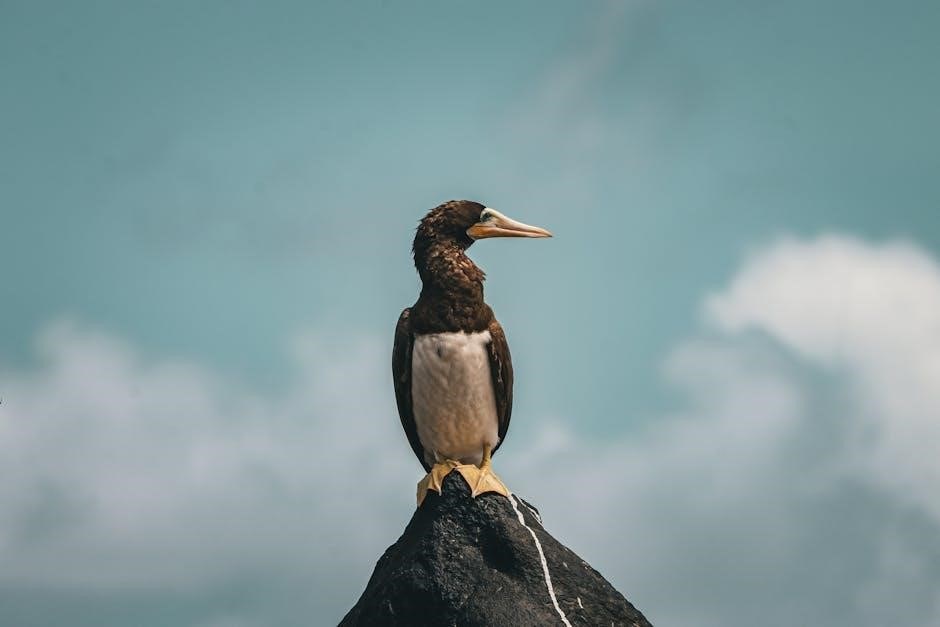Wildlife biology explores the study of wild animals‚ their habitats‚ and ecosystems․ It emphasizes conservation‚ management‚ and ecological principles‚ with core curriculum resources available online for free as PDFs․
1․1 Overview of Wildlife Biology
Wildlife biology is the scientific study of wild animals and their interactions with ecosystems․ It encompasses understanding animal behavior‚ ecology‚ and conservation․ The core curriculum covers animal diversity‚ ecological principles‚ and conservation biology‚ providing foundational knowledge for managing wildlife populations and habitats․ Online resources‚ including free PDFs and lecture series‚ offer comprehensive insights into these topics․ These materials are essential for students and professionals alike‚ fostering a deeper understanding of wildlife management and conservation efforts․ The field integrates biology‚ ecology‚ and environmental science to address global challenges in biodiversity and ecosystem health․
1․2 Importance of Studying Wildlife Biology
Studying wildlife biology is crucial for understanding and addressing the challenges faced by ecosystems and wildlife․ It provides insights into biodiversity conservation‚ habitat management‚ and the impact of human activities on wildlife․ The core curriculum equips students with essential knowledge and skills to develop effective conservation strategies․ Free online resources‚ such as PDFs and lecture series‚ make this education accessible‚ enabling a broader understanding of ecological principles and wildlife management․ By studying wildlife biology‚ individuals can contribute to preserving species‚ maintaining ecosystem balance‚ and promoting sustainable coexistence between humans and nature‚ ultimately benefiting both current and future generations․
1․3 Brief History of Wildlife Biology as a Field of Study
Wildlife biology emerged as a distinct field in the early 20th century‚ focusing on the study of wild animals and their environments․ Early efforts concentrated on game management and conservation‚ with pioneers like Aldo Leopold shaping the discipline․ The mid-20th century saw increased emphasis on ecological principles and biodiversity․ Today‚ wildlife biology incorporates advanced research methods and technologies‚ with accessible resources like free online PDFs and lecture series expanding educational opportunities; This evolution reflects a growing commitment to sustainability and the preservation of natural ecosystems‚ ensuring the field remains vital in addressing modern environmental challenges․

Core Courses in Wildlife Biology Curriculum
Core courses include animal diversity‚ ecological principles‚ conservation biology‚ and wildlife management techniques‚ providing a foundational understanding of the field‚ with resources available as free online PDFs․
2․1 Animal Diversity and Evolution
Animal diversity and evolution are fundamental topics in wildlife biology‚ exploring the classification‚ adaptation‚ and evolutionary processes of species․ These studies provide insights into how animals have developed unique traits to survive in various ecosystems․ Understanding biodiversity is crucial for conservation efforts‚ as it helps identify species’ roles in maintaining ecological balance․ Free online PDF resources‚ such as core curriculum materials‚ offer comprehensive guides on animal diversity‚ including detailed classifications and evolutionary histories․ These resources are essential for students and researchers‚ offering accessible learning opportunities to deepen knowledge of wildlife biology and its applications in conservation and management strategies․
2․2 Ecological Principles in Wildlife Biology
Ecological principles form the backbone of wildlife biology‚ focusing on interactions between organisms and their environments․ Key concepts include ecosystems‚ food webs‚ and population dynamics‚ which are essential for understanding species behavior and habitat requirements․ These principles guide conservation strategies‚ helping manage biodiversity and mitigate environmental impacts․ Free online PDF resources‚ such as core curriculum materials‚ provide detailed explanations of ecological theories and their practical applications in wildlife management․ By studying these principles‚ students gain a foundational understanding of how to balance human activities with the needs of wildlife populations‚ ensuring sustainable ecosystems for future generations․
2․3 Conservation Biology Fundamentals
Conservation biology focuses on preserving threatened species and ecosystems‚ addressing habitat loss‚ climate change‚ and human impact․ Core principles include biodiversity‚ restoration ecology‚ and sustainable resource management․ Free online PDF resources provide comprehensive insights into these fundamentals‚ offering practical strategies for combating extinction and promoting ecological balance․ By integrating theoretical knowledge with real-world applications‚ conservation biology equips students to address global environmental challenges effectively‚ ensuring the survival of diverse species and maintaining healthy ecosystems for future generations․
2․4 Wildlife Management Techniques
Wildlife management techniques involve practical methods to monitor and sustain animal populations․ These include field census methods‚ habitat restoration‚ and population control strategies․ Free online PDF resources provide detailed guides on implementing these techniques‚ ensuring effective conservation practices․ By mastering these skills‚ students can apply adaptive management strategies in diverse ecosystems‚ balancing human and wildlife needs while preserving biodiversity․ These techniques are essential for maintaining healthy wildlife populations and ecosystems‚ addressing challenges like habitat fragmentation and climate change․
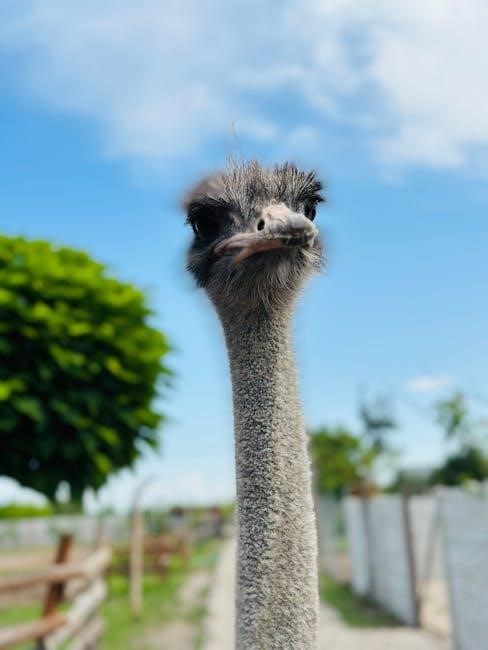
Importance of Core Curriculum in Wildlife Biology
The core curriculum in wildlife biology provides essential knowledge‚ skills‚ and practical applications‚ preparing students for advanced studies and real-world conservation efforts‚ with free online resources available․
3․1 Building Foundational Knowledge
Building foundational knowledge in wildlife biology is crucial for understanding key concepts like animal diversity‚ ecological principles‚ and conservation biology․ Online resources‚ including free PDFs‚ offer comprehensive coverage of these topics‚ enabling students to grasp the fundamentals effectively․ These materials often include detailed sections on vertebrate biology‚ wildlife management techniques‚ and ecological principles‚ forming a solid base for further studies․ By leveraging these resources‚ learners can develop a strong understanding of the subject‚ preparing them for advanced topics and practical applications in conservation and wildlife management․ This foundation is essential for addressing real-world challenges in the field․
3․2 Preparing for Advanced Studies
The core curriculum in wildlife biology plays a vital role in preparing students for advanced studies by providing a robust understanding of ecological principles‚ conservation biology‚ and animal diversity․ Online resources‚ such as free PDFs and lecture series‚ offer in-depth insights into these topics‚ enabling students to explore complex concepts independently․ These materials also introduce practical applications‚ fostering critical thinking and problem-solving skills․ By mastering the core curriculum‚ learners are well-equipped to tackle specialized fields like wildlife management or ecological research‚ ensuring a smooth transition into advanced academic or professional pursuits in wildlife biology․
3․3 Practical Applications in Conservation
The core curriculum in wildlife biology provides essential tools for real-world conservation efforts․ Through free online PDFs and lectures‚ students learn field techniques‚ data analysis‚ and management strategies․ These resources emphasize practical skills‚ enabling graduates to address habitat preservation‚ species protection‚ and ecosystem restoration effectively․ By applying theoretical knowledge to actual conservation challenges‚ professionals can develop sustainable solutions‚ ensuring the preservation of biodiversity and ecological balance; This integration of education and practice underscores the curriculum’s role in fostering effective conservationists capable of making a tangible impact in the field of wildlife biology․

Practical Skills in Wildlife Biology
Practical skills include field techniques for wildlife census‚ data collection‚ and analysis․ Free PDFs and online resources provide hands-on training for conservation and management applications․
4․1 Field Techniques for Wildlife Census
Field techniques for wildlife census involve methods like camera traps‚ mark-recapture‚ and habitat assessments․ These tools help estimate population sizes and track species distributions․ Free PDF resources‚ such as Techniques for Wildlife Census in India, A Field Manual‚ provide detailed guidance on these practices․ They cover practical applications‚ ensuring accurate data collection for conservation efforts․ These manuals emphasize the importance of precision in fieldwork‚ offering step-by-step instructions for effective wildlife monitoring․ Such resources are invaluable for students and professionals alike‚ bridging theory with real-world application in wildlife biology․
4․2 Data Collection and Analysis Methods
Data collection and analysis are critical in wildlife biology‚ involving methods like mark-recapture‚ camera traps‚ and habitat surveys․ These techniques ensure accurate population estimates and ecological insights․ Free PDF resources‚ such as manuals and lecture series‚ provide detailed guidance on data collection protocols and statistical analysis tools․ Emphasizing ethical practices‚ these materials train professionals to interpret data effectively․ They also cover software applications for analyzing ecological trends‚ making them essential for both students and researchers․ These resources bridge theoretical knowledge with practical skills‚ enhancing conservation efforts through reliable data-driven decisions․

Online Resources for Wildlife Biology Curriculum
Free PDF downloads and lecture series on wildlife biology are available online‚ covering core topics like ecology and conservation․ Platforms offer comprehensive resources for students and researchers․
5․1 Open Educational Resources (OER)
Open Educational Resources (OER) provide free access to high-quality learning materials for wildlife biology․ These resources include textbooks‚ lecture notes‚ and study guides‚ available as PDFs․ OER covers core topics such as ecological principles‚ conservation biology‚ and wildlife management․ They are designed to support students and educators‚ offering flexible learning opportunities․ Platforms like OpenStax and WikiEducator host these materials‚ ensuring accessibility worldwide․ OER promotes equity in education by reducing costs and enabling learners to explore complex subjects without financial barriers․ These resources are regularly updated to reflect current research and advancements in the field of wildlife biology․
5․2 Free PDF Downloads and Lecture Series
Free PDF downloads and lecture series are invaluable resources for studying wildlife biology․ These materials cover core topics such as animal diversity‚ ecological principles‚ and conservation techniques․ Platforms like university websites and educational forums offer downloadable PDFs of lecture notes‚ textbooks‚ and study guides․ Lecture series‚ often recorded by experts‚ provide in-depth insights into wildlife management and conservation biology․ These resources are ideal for self-study and classroom use‚ offering flexibility and accessibility․ They ensure that learners can access high-quality educational content without financial barriers‚ making wildlife biology education more inclusive and widespread․
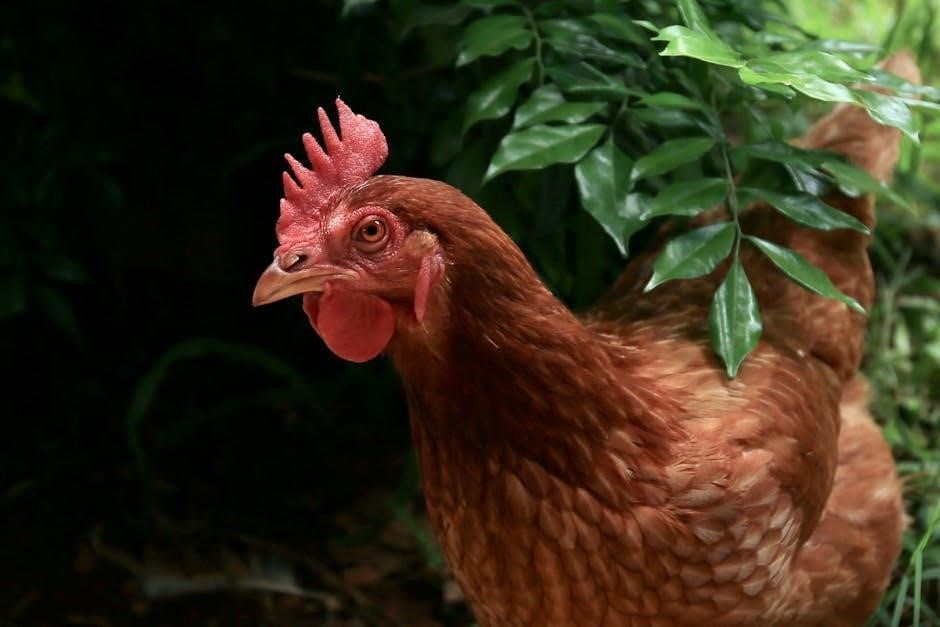
Platforms Offering Free Wildlife Biology Courses
Platforms like Coursera‚ edX‚ and Khan Academy offer free wildlife biology courses․ These platforms provide a variety of learning materials‚ including PDFs‚ videos‚ and interactive content․
6․1 Coursera
Coursera offers a wide range of free online courses related to wildlife biology‚ providing students with accessible and flexible learning opportunities․ These courses cover core topics such as ecological principles‚ conservation biology‚ and wildlife management‚ often including downloadable resources like PDFs․ Learners can explore structured programs designed by top universities worldwide․ Coursera’s platform allows students to study at their own pace‚ making it ideal for those seeking to build foundational knowledge or enhance their skills in wildlife biology․ The availability of free resources makes it an excellent starting point for enthusiasts and professionals alike․
6․2 edX
6․3 Khan Academy
Khan Academy offers free online courses and resources that complement the wildlife biology core curriculum․ While not exclusively focused on wildlife biology‚ its extensive biology and ecology courses provide foundational knowledge․ Topics such as ecology‚ zoology‚ and conservation biology are covered in depth‚ aligning with core curriculum themes․ Khan Academy’s platform is accessible to everyone‚ with no sign-up required‚ making it an ideal resource for self-paced learning․ The materials are available free of charge‚ including PDF downloads‚ ensuring accessibility for students worldwide․ This platform is particularly useful for gaining a solid understanding of ecological principles and animal behavior‚ essential for wildlife biology studies․
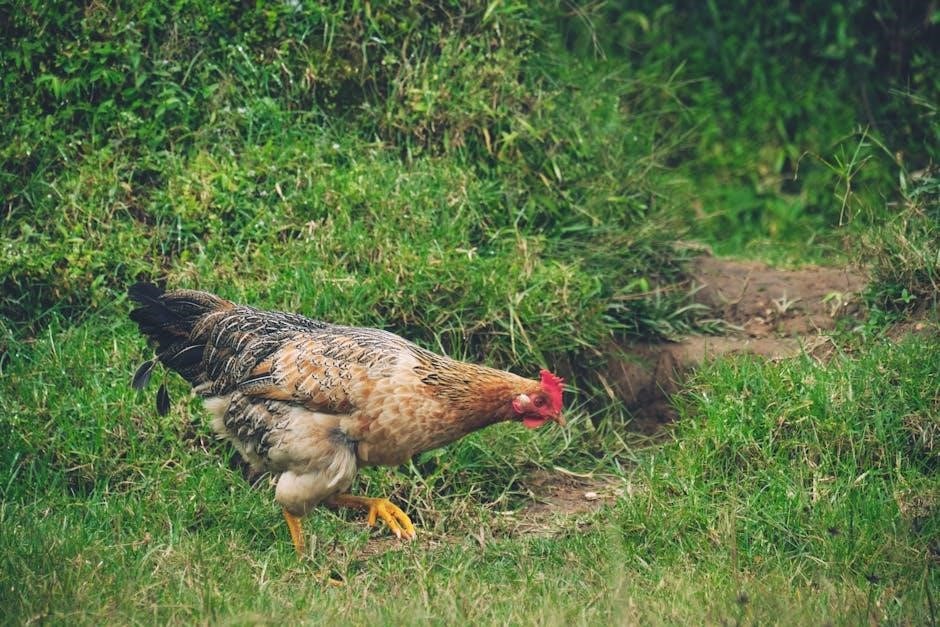
Benefits of Online Learning in Wildlife Biology
Online learning offers flexibility‚ accessibility‚ and cost-effective education‚ enabling students to study wildlife biology core curriculum through free PDF resources and self-paced learning opportunities anywhere‚ anytime․
7․1 Flexibility and Accessibility
Online learning in wildlife biology offers unparalleled flexibility‚ allowing students to access core curriculum materials anytime and anywhere․ With free PDF downloads available‚ learners can study at their own pace without being constrained by location or time․ This accessibility is particularly beneficial for those balancing education with other commitments‚ ensuring that everyone can engage with essential topics like conservation and ecological principles․ The availability of resources online breaks down barriers‚ making wildlife biology education more inclusive and widespread than ever before․
7․2 Self-Paced Learning Opportunities
Self-paced learning is a cornerstone of online wildlife biology education‚ enabling students to progress through core curriculum materials at their own rhythm․ Free PDF resources and lecture series allow learners to revisit complex topics‚ such as conservation biology and ecological principles‚ as needed․ This flexibility is particularly advantageous for those who require additional time to grasp certain concepts or balance their studies with other responsibilities․ By allowing individuals to set their own learning schedules‚ online platforms foster a more personalized and effective educational experience‚ ensuring deeper understanding and retention of key wildlife biology concepts․ This approach enhances overall academic success․
7․3 Cost-Effective Education
Online learning platforms offer a cost-effective way to access wildlife biology education․ Free PDF downloads of core curriculum materials‚ such as textbooks and lecture notes‚ eliminate the need for expensive physical copies․ Platforms like Coursera and edX provide free courses‚ reducing financial barriers for students․ This accessibility ensures that learners can acquire foundational knowledge in wildlife biology without incurring high tuition fees․ Additionally‚ open educational resources (OER) and free lecture series further support affordable learning‚ making high-quality education accessible to a broader audience․ This cost-effectiveness is a significant advantage of pursuing wildlife biology studies online․

Career Opportunities in Wildlife Biology
Wildlife biology offers diverse career paths‚ including roles as wildlife biologists‚ conservation scientists‚ and environmental consultants․ These positions focus on species management‚ ecosystem preservation‚ and sustainable practices․
8․1 Wildlife Biologist Roles
Wildlife biologists study and manage wild animal populations and their habitats․ Their roles include conducting field research‚ developing conservation plans‚ and collaborating with agencies to ensure biodiversity․ They analyze data to understand species behavior‚ population dynamics‚ and environmental impacts․ Key responsibilities involve implementing sustainable practices‚ monitoring ecosystems‚ and educating the public on wildlife preservation․ These professionals often specialize in specific species or habitats‚ applying knowledge from core curriculum subjects like animal diversity and ecological principles․ Their work is crucial for maintaining healthy ecosystems and addressing global conservation challenges‚ making them essential contributors to environmental sustainability efforts worldwide․
8․2 Conservation Scientist Positions

Conservation scientists focus on preserving and restoring ecosystems‚ ensuring sustainable use of natural resources․ They assess environmental impacts‚ develop management plans‚ and implement policies to protect biodiversity․ These professionals collaborate with governments‚ NGOs‚ and communities to address habitat loss‚ climate change‚ and species decline․ Their work involves field research‚ data analysis‚ and public education to promote conservation efforts․ By applying principles from wildlife biology core curriculum‚ they address critical environmental challenges effectively․
Online resources‚ such as free PDFs and lectures‚ provide foundational knowledge for conservation scientists‚ enabling them to stay updated on best practices and innovative strategies in the field․
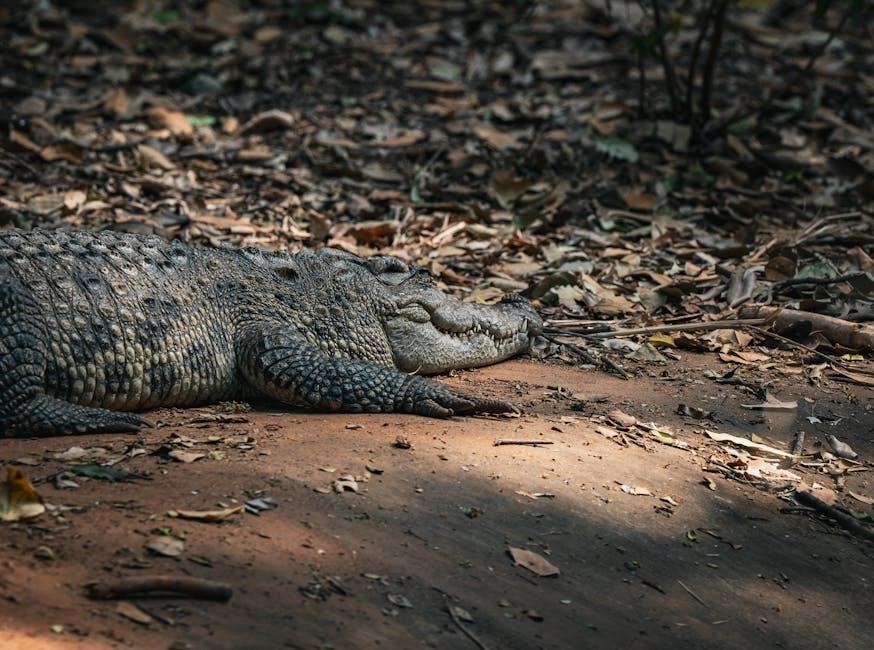
8․3 Environmental Consultant Careers
Environmental consultants specialize in assessing and mitigating the impact of human activities on ecosystems․ They conduct site evaluations‚ develop sustainability plans‚ and ensure compliance with environmental regulations․ These professionals often work with industries like construction‚ energy‚ and government agencies to promote eco-friendly practices․ Their expertise includes habitat restoration‚ pollution control‚ and biodiversity conservation․ By leveraging knowledge from wildlife biology core curriculum resources‚ available as free PDFs online‚ they provide scientifically grounded solutions to environmental challenges․ This role requires strong analytical and communication skills to bridge scientific principles with practical applications․
Wildlife biology core curriculum resources‚ available as free PDFs online‚ provide essential knowledge for conservation and management‚ fostering a deeper understanding of ecosystems and biodiversity preservation․
9․1 Summary of Key Points
Wildlife biology core curriculum resources‚ accessible as free PDFs online‚ cover essential topics like conservation‚ ecology‚ and management; These materials are designed to equip students with foundational knowledge‚ practical skills‚ and a deep understanding of biodiversity․ They emphasize the importance of conservation efforts‚ providing insights into field techniques and data analysis․ By leveraging these resources‚ learners can gain a comprehensive education without financial barriers‚ preparing them for careers in wildlife biology and related fields․ These PDFs are invaluable for both academic and professional development‚ ensuring accessibility and fostering a commitment to environmental stewardship․
9․2 Encouragement to Pursue Wildlife Biology Studies
Embarking on wildlife biology studies is a rewarding journey‚ especially with accessible resources like free PDFs and online courses․ These tools provide a flexible‚ cost-effective way to explore diverse topics‚ from animal diversity to conservation principles․ By engaging with these materials‚ students can develop a strong foundation and gain practical skills‚ preparing them for impactful careers in conservation and environmental science․ Pursuing wildlife biology not only advances your education but also contributes to the preservation of global biodiversity‚ making it a fulfilling path for those passionate about nature and sustainability․
